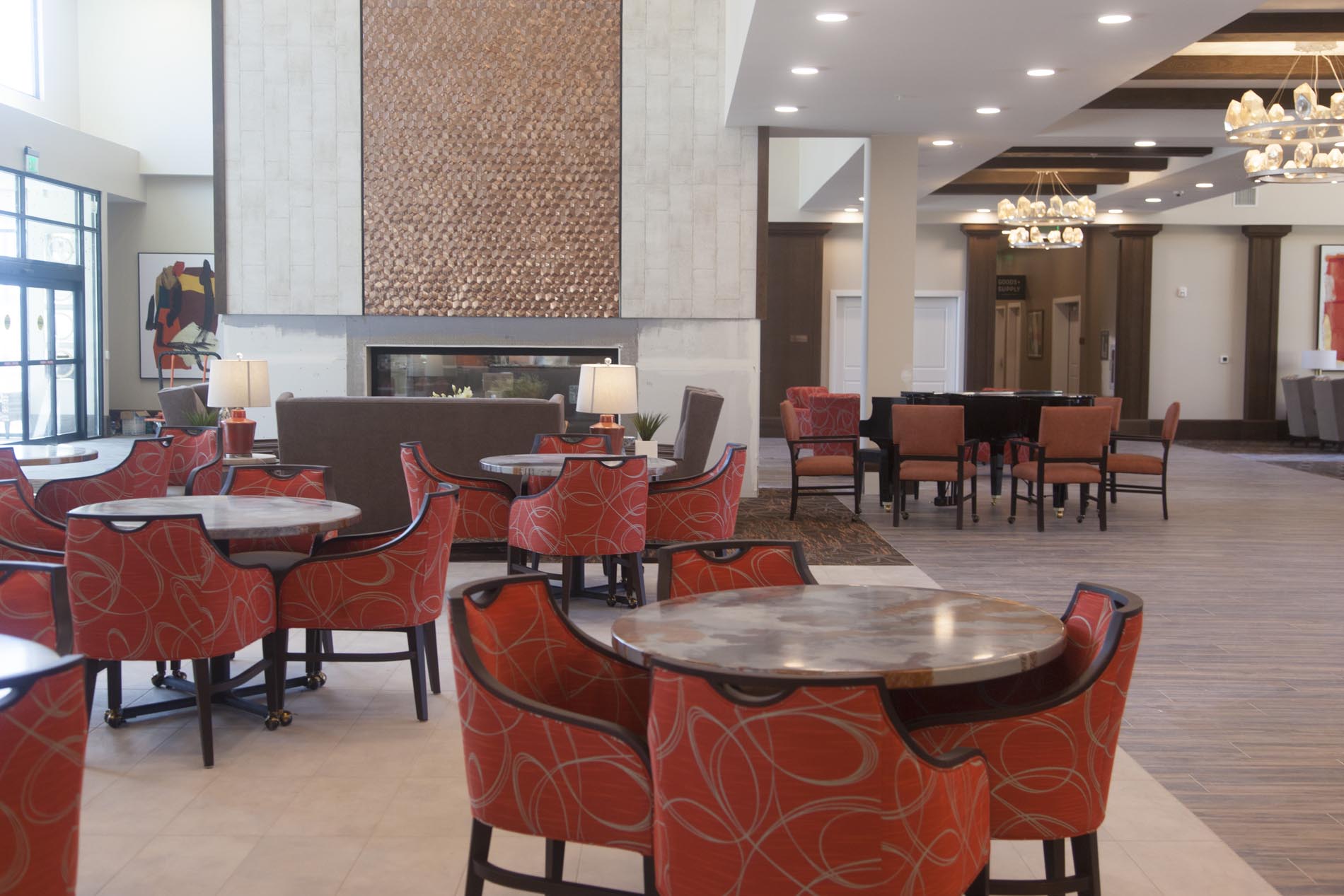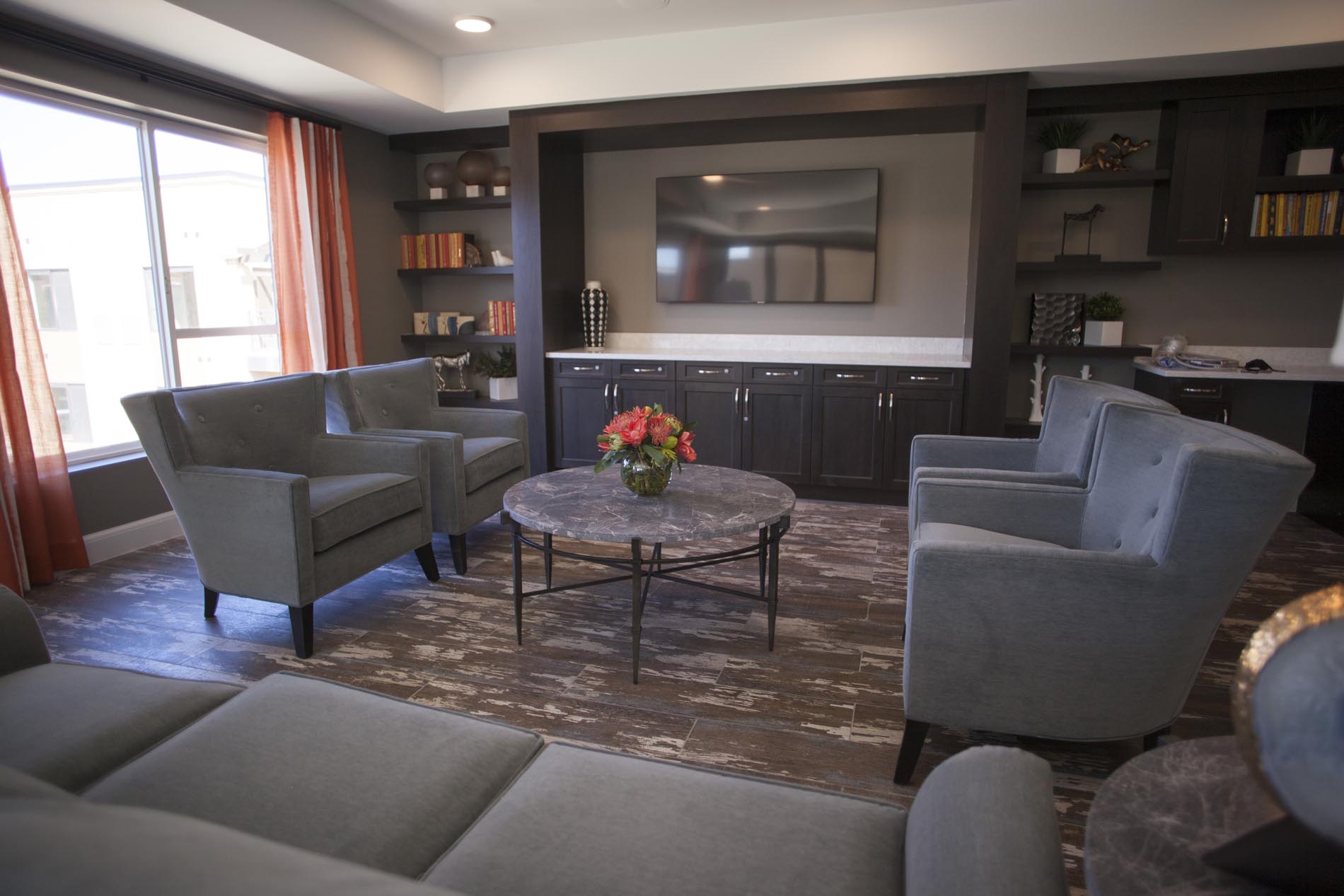When looking for a new residence for you or for a member of your family, one that fits your current and future needs, it’s important to understand the terminology you will encounter. One important distinction in terms is the difference between “assisted living” and “memory care.” Both are considered supportive living environments, but their differences can help determine the best solution for your unique combination of needs.
Some people with Alzheimer’s disease and other forms of dementia may be better suited for assisted living, while others will be much more comfortable and secure in memory care. Which is best will depend on the symptoms the individual displays, along with the severity and frequency of those events.
Activities of Daily Living
When you are learning about supportive living environments, you will probably encounter another important term, “ADL,” which stands for Activities of Daily Living. They include:
- personal grooming, such as brushing teeth and hair
- dressing
- bathing
- using the restroom
- eating meals
- taking medication
- getting from place to place
The level of assistance that one needs with ADLs will determine which type of residence is best. If you or a loved one requires regular service with one or more of the ADLs, it is likely that you would benefit from an assisted living or memory care community.” Residents of assisted living communities may require some assistance with ADLs, but this support often empowers them to live largely independent lives. Residents of memory care may require more help with ADLs, which is one of the reasons why memory care is more comprehensive and expensive than assisted living.
Types of Assisted Living Communities in Utah
The state of Utah provides for two levels of assisted living services, as spelled out in the Utah Administrative Code. Level I is for those who can move about on their own and who need minimal help with activities of daily living. Residents of Level I communities must be able to exit their residence without assistance in case of an emergency. Those with memory impairments are not eligible for Level I residences.
Level II is for those who may need the assistance of one person, usually a certified nurse assistant or caregiver. This level also offers help with activities of daily living. A level II assisted living may also utilize outside services such as home health or hospice to assist in caring for individuals who require more assistance. It is a common misbelief that an individual on home health or hospice does not need assisted living when, in reality, utilizing multiple services can further enhance the quality of life.
Those with certain memory impairments can live in a Level II residence, but that will depend on what events the individual experiences. Some communities also offer memory care units, which offer a different level of safety and specialized care.
Ovation is a level II Assisted Living and Memory care community that provides services with general activities of daily living as well as a secure neighborhood for those experiencing certain behaviors. Each resident is individually assessed quarterly by a registered nurse and monitored daily by members of the nursing and care team. This will ensure that each resident is receiving the highest quality of care and services.
Evaluating Assisted Living vs. Memory Care
Although assisted living and memory care communities are similar, they have significant differences.
Who Needs Memory Care?
Memory care communities are for those who need additional safety and security measures. Those with early stages of memory impairment may be eligible for a Level II residence that is not a memory care unit but this would need to be verified through an assessment from a Registered Nurse.
Those with memory impairments more than likely do not qualify for a memory care unit if they pose a danger to themselves or others or if they require hospital-level care. One common metric to determine eligibility is the number of people needed to assist in case of an evacuation. In most cases, the individual will need to evacuate with the assistance of no more than one person. However, one exception to this would be if the individual is on hospice and has a community approved evacuation plan, but this would need to be determined by a registered nurse’s assessment.
While the memory care neighborhoods at Ovation have completely secured exterior doors, the neighborhood itself is set up for residents to wander freely in a safe environment to promote independence and maintain dignity. If residents living in our memory care neighborhoods wish to leave, a team member will be assigned to escort them on a walk around the campus and remain in their company.
Floorplan Differences
There are some design differences in assisted living apartments and memory care homes. Most assisted living floorplans will include a kitchenette while those in memory care do not. A simple clutter-free floor plan has shown to be much more beneficial to those that suffer with dementia or Alzheimer’s.
Staffing Differences
In Utah, memory care communities must have at least one staff member trained in dementia care who is on-site at all times. All staff members should know the types and stages of dementia. They should also receive training in person-centered care techniques so they can communicate effectively with residents with memory disorders and keep them safe.
Staff-to-resident ratios are not mandated in Utah. Be sure to inquire about the staffing level of any community that you are considering for yourself or for a family member.
Medications
In Utah, residents of supportive living communities are assessed to determine how much assistance they need with medication. Some residents at assisted living communities may administer their own medications. In contrast, staff members at memory care communities administer medications for residents.
Memory Care and the Five Senses
While programming at assisted living communities often centers around enjoyable time with friends and neighbors, the programming at memory care communities includes a cognitive component to help decrease or slow memory impairment. Activities that involve the five senses are especially important.
Those who have Alzheimer’s and other forms of dementias can lose some perception of their five senses. Losing sensory perceptions can affect our lives in major ways, and it can even compromise safety. We rely on our senses to keep us safe. Our sense of smell tells us when food is burning. Our sense of taste tells us when milk has turned sour. Alarms alert us when something is wrong. Our tactile senses tell us when something is hot or sharp. And we get enormous amounts of information through our eyesight. Memory care communities are excellent at offering amenities, programming and staff members that keep residents safe and alert.
Also, our five senses help us appreciate life. We enjoy vivid colors, tasty food, pleasurable aromas, beautiful music and pleasing sensations on our skin. It’s even possible that stimulating the senses might slow down sensory loss. In the name of cognitive improvement and quality of life, memory care communities offer memory care programs that appeal to residents’ senses. At Ovation Sienna Hills, we offer Aroma Connections, Art Connections, Tactile Connections and even Pet Connections. Visit our Memory Care page to learn more about our Connections programs.
More Things to Look for in Memory Care
Memory care communities have services that address the particular needs of those who have dementia. These can include:
- Diet Supervision: Those with dementia disorders sometimes lack appetite, and staff may need to take extra care to make mealtime pleasant and stress-free. Residents may also need supervision to be sure they are eating a suitable diet.
- Communication: Dementia disorders can make communication difficult. The staff of memory care communities should know communication techniques, such as redirection. They should speak respectfully and use humor to ease tense situations. These techniques are especially important in Alzheimer’s care.
- Movement: Exercise can help those with dementia disorders in the same ways that it helps others. It can increase appetite, improve mobility, enhance mood and improve sleep. Memory care units should provide opportunities for residents to exercise at appropriate levels.
While these services can also be offered in an assisted living environment, memory care will provide a focus on helping with dementia caused behaviors.
Senior Living in St. George
Ovation Sienna Hills in St. George, Utah, offers independent living, assisted living and memory care in a beautiful setting. Close to many points of interest, it has services and amenities that encourages and empowers residents to live and thrive.
To learn more about our community and help you make the right decision for you, we’ve created A Guide to Retiring in St. George, Utah. Download the guide or call our team to find out more about the Ovation Sienna Hills lifestyle.




